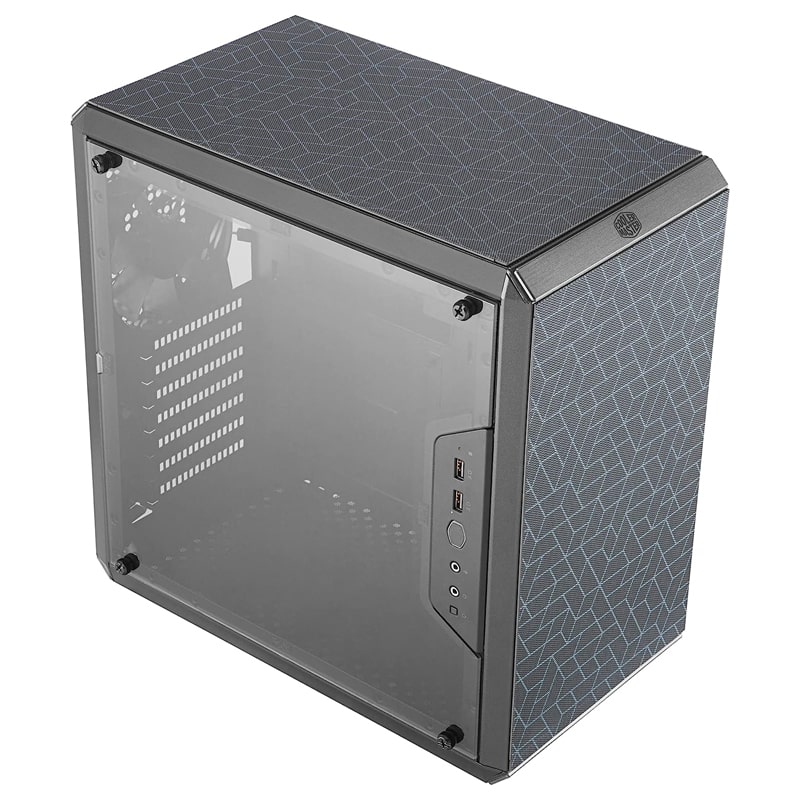In the fast-paced world of gaming, where every second counts, having the right equipment can make all the difference. While consoles have their place, true gaming enthusiasts know that a custom-built gaming PC is the key to unlocking the ultimate gaming experience. In this blog post, we will explore the fascinating world of gaming PCs, discussing the benefits, components, and steps to help you build your dream gaming rig.
The Advantages of a Gaming PC Gaming PCs offer unparalleled advantages over traditional gaming consoles. From superior graphics and performance to a customizable gaming experience, here’s why a gaming PC should be your weapon of choice:
1.1 Superior Graphics and Performance: Unlike consoles, gaming PCs can be upgraded with the latest graphics cards and processors, delivering stunning visuals and unrivaled performance. This ensures that you can enjoy the latest games in all their glory, with smooth frame rates and crisp details.
1.2 Customization for Personalized Gaming: Gaming PCs allow for extensive customization, letting you choose components based on your preferences and budget. From RGB lighting to liquid cooling systems, the possibilities are endless, allowing you to create a gaming setup that reflects your unique style.
Essential Components of a Gaming PC Building a gaming PC may seem like a daunting task, but breaking it down into key components makes the process more manageable. Here are the essential components you’ll need for a powerful gaming rig:
2.1 Graphics Processing Unit (GPU): The GPU is the heart of any gaming PC, responsible for rendering graphics and ensuring smooth gameplay. Popular choices include NVIDIA and AMD graphics cards, each offering various models to suit different budgets and gaming needs.
2.2 Central Processing Unit (CPU): The CPU acts as the brain of the gaming PC, handling tasks like game physics and artificial intelligence. High-performance CPUs from Intel and AMD are crucial for a seamless gaming experience.
2.3 Random Access Memory (RAM): RAM is essential for storing temporary data that the CPU can access quickly. Opt for at least 16GB of RAM to handle modern games and multitasking efficiently.
2.4 Storage: Fast and ample storage is crucial for quick game loading times. Consider a combination of a solid-state drive (SSD) for the operating system and essential applications, coupled with a larger hard disk drive (HDD) for additional storage.
Building Your Gaming PC – Step by Step Guide Now that you understand the components, let’s embark on the exciting journey of building your gaming PC. Follow these steps to bring your gaming rig to life:
3.1 Planning and Research: Define your budget, research components, and choose parts that align with your gaming preferences. Ensure compatibility between components to avoid any issues during the build.
3.2 Assembling the Components: Carefully assemble the motherboard, CPU, RAM, GPU, and storage devices inside the computer case. Follow the manufacturer’s instructions and take your time to ensure a proper build.
3.3 Cable Management: Neat and organized cable management not only looks aesthetically pleasing but also ensures optimal airflow and cooling. Take the time to route cables carefully and secure them in place.
3.4 Installing the Operating System and Drivers: Once your gaming PC is assembled, install the operating system and necessary drivers. This step is crucial for optimal performance and compatibility with your hardware.
Conclusion: Building a gaming PC is a rewarding experience that offers unmatched performance and customization. By understanding the advantages, components, and steps involved, you can embark on the journey of creating your dream gaming rig. Unleash the ultimate power and take your gaming experience to new heights with a custom-built gaming PC.
1. What is a gaming PC?
- A gaming PC is a personal computer specifically designed for playing video games. It typically features high-performance hardware components to deliver superior graphics, processing power, and overall gaming experience.
2. What are the essential components of a gaming PC?
- Key components include a powerful CPU (Central Processing Unit), a dedicated GPU (Graphics Processing Unit), sufficient RAM (Random Access Memory), fast storage (SSD recommended), a motherboard, and a reliable power supply.
3. Do I need a high-end gaming PC to play games?
- The gaming experience depends on the specific requirements of the games you want to play. While high-end PCs offer better performance and graphics, mid-range or budget-friendly options can still handle many games smoothly.
4. Can I upgrade my gaming PC in the future?
- Yes, most gaming PCs are designed to be upgradeable. You can typically upgrade components like the GPU, RAM, and storage. Ensure that the motherboard supports future upgrades and check for compatibility before making changes.
5. What is the ideal GPU for gaming?
- The ideal GPU depends on your budget and the type of games you want to play. Popular choices include NVIDIA GeForce and AMD Radeon series. Research the recommended system requirements for your favorite games to determine the appropriate GPU.

